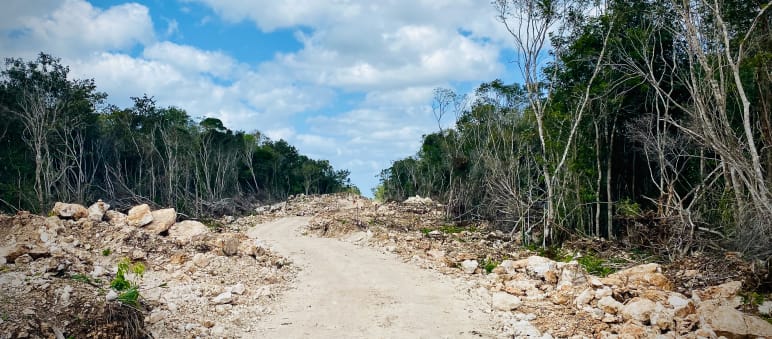
Inauguration of Mexico’s “Mayan Train”: No reason to celebrate
Mexico: Tren Maya – a high-speed tourist train through the Yucatán rainforest and vanity project of the Mexican president – is causing serious environmental destruction and massive problems for local Indigenous people. Rainforest Rescue supported the campaign against the project, which is estimated to cost between 20 and 30 billion euros, with a petition.
“We are not going to cut down a single tree,” declared Mexican President López Obrador in 2018 about his “Tren Maya” project. The more than 1,500-kilometer railroad, which has been under construction since then, is planned to cross five Mexican states in the southeast of the country mostly inhabited by Indigenous communities.
The railroad will carry tourists from the Caribbean beaches of Cancún, Playa del Carmen and Tulum to the Mayan ruins of Chichen Itza and Palenque in the rainforest of the Yucatán Peninsula. The first sections of the line have been inaugurated with great fanfare by the Mexican president.
Our partner organizations and rainforest communities have been sounding the alarm about this project for years. They did not believe López Obrador’s words from the beginning, and they remain concerned not only about nature, but also about the livelihoods and rights of the Indigenous communities living in the area.
“We couldn’t prevent the train, but we did accomplish a lot.”
After several calls for help, Rainforest Rescue launched the “NO to tourist trains in the Mayan rainforest!” petition in late 2018, spearheading an international campaign against the megaproject in the Mexican rainforest.
“We expressed our solidarity with the affected people and our partner organizations in Mexico and stood by their side,” explains Rainforest Rescue activist Guadalupe Rodríguez.
“While we were not able to prevent or stop the Tren Maya, we did accomplish a lot. We helped generate public pressure and international attention. Together, we kept a watchful eye on the Mexican government and authorities. This prevented the Tren Maya and the construction work from having an even worse impact on nature and the people who live there.”
The petition, which received a great response in Mexico and internationally, was supported by 282,629 people from all over the world. Local organizations have delivered it to various government agencies on several occasions. The petition has also been used in legal proceedings, which at times have resulted in stopping parts of the project or making minor changes to the route.
Deutsche Bahn involvement
To illustrate our petition, we used a photomontage of a Deutsche Bahn (DB) ICE train in front of Mayan ruins in the rainforest of Mexico. Just over two years later, it came to light that DB was indeed involved in the Tren Maya project as a “shadow operator”.
DB refused to provide the public with any information about what this meant or the nature of its involvement. The German government also left parliamentary and other inquiries about this virtually unanswered, even though the DB group is wholly state-owned.
The Mexican President’s vanity project, which is estimated to cost between 20 and 30 billion euros, has been declared a national priority. The construction, which violates Mexican environmental laws and international conventions, has been placed under the supervision of the military.
It is now clear that at least 6,659 hectares of rainforest, and thus many millions of trees, have been cut down for the Tren Maya, as documented by environmental organizations in Mexico. The project is having a massive negative impact on the livelihoods and rights of the Indigenous people of the Yucatán Peninsula.
Further information:
Ya Basta Network published a comprehensive study Tren “Maya” Made in Germany - ‘Deutsche Bahn’ and the train of destruction in June 2022.
This page is available in the following languages:
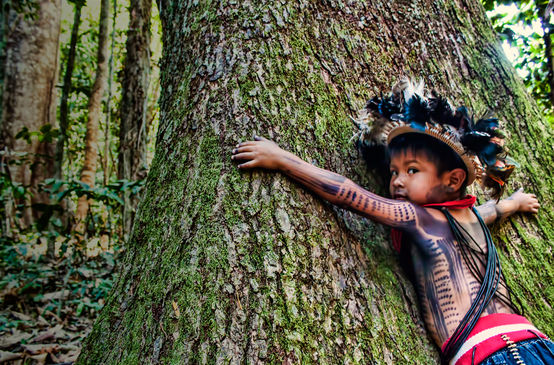
Supporting rainforest defenders
Rainforests are in particularly good shape wherever Indigenous people live and local communities are committed to conservation.
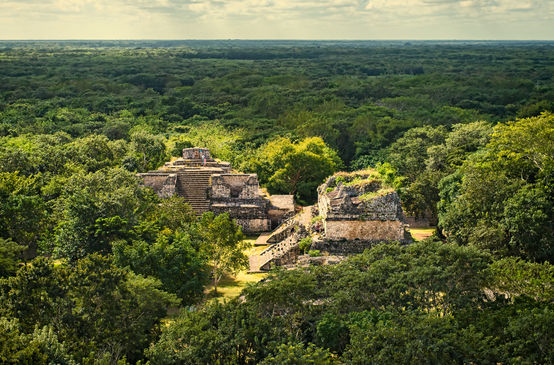
Protecting the forest with the Túumben K’óoben Indigenous women’s cooperative
Instead of mass tourism, Indigenous Mayan women are choosing their own path: forest conservation, agro-ecology, and cultural survival on their terms.
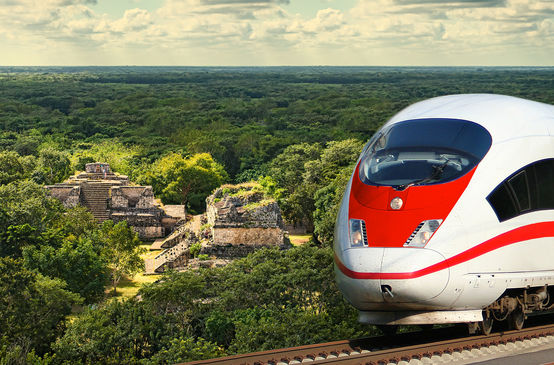
NO to tourist trains in the Mayan rainforest!
An absurd infrastructure project: A high-speed train from the Caribbean coast, through the Mexican rainforest to the ancient Mayan pyramids?
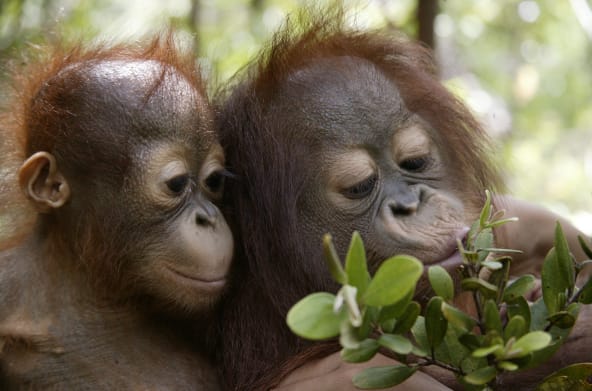
The rainforest
A green sea of ferns, mosses, vines and ancient trees. Iridescent butterflies and colorful birds. Flowers in every hue of the rainbow. The “green lung” is a natural wonder of the world. Find out more about the world’s most diverse, fascinating and threatened ecosystem.